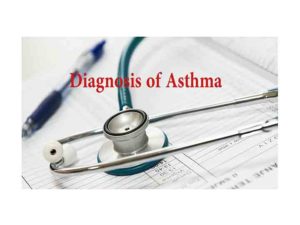Why do I have asthma?
Exact Cause of Asthma is unknown. It isn’t clear why some people suddenly get it and others don’t. This condition is not due to a single factor but may be due to complex interaction of multiple factors including a combination of environmental and genetic (inherited) factors.
Triggers of Asthma:
Exposure to various irritants, chemicals and substances (allergens) can trigger symptoms. These triggers include:
- Airborne allergen like pollen, dust mites, mold etc.
- Respiratory infections like common cold
- Cold air
- Physical activity (EIB)
- Air pollutants and irritants, such as smoke
- Certain medications, including beta blockers, aspirin, ibuprofen etc
- Strong emotions and stress
- Sulfites and preservatives added to some types of foods and beverages, including shrimp, dried fruit etc
- Gastroesophageal reflux disease (GERD)
Factors associated with an increased incidence of asthma include:
Multiple factors are responsible for causation. These include:
- Genetic factor:
There are several genes identified which may be associated with increased risk.
In general, asthma is more likely to develop if there is:
- Family history of some form of allergic disease
- Family history of atopy
- Personal history of atopy or other form of allergic disease.
- Allergic rhinitis:
Allergic rhinitis is a major risk factor for development of asthma. Children who has allergic rhinitis are at increased risk of asthma in later life.
- Allergen sensitization and exposure:
Sensitization to environmental allergen is strongly associated with development of childhood asthma. However allergen avoidance measure in already developed case of asthma is a debatable issue and is it advisable to avoid allergen whenever possible.
- Reduce exposure to single allergen is not helpful.
- Reduce exposure to multiple allergen are helpful
- Removal of pet from home usually not necessary unless your Allergist advice it in your pet allergy.
- Exclusion of allergenic foods from the maternal diet is not recommended. However if your allergist recommend to avoid certain food the go as per your physician.
- Introduction of solid foods from around 4–6 months while still breastfeeding can be done.
- Smoking
Exposure to cigarette smoke is a major risk factor for wheezing illness in children. Maternal smoking during pregnancy significantly increases the risk of wheezing in early childhood. However these factors may not increase risk of atopic asthma later in life.
- Smoking is an epigenetic risk factor.
- Smoking in pregnancy affects fetal lung growth.
- There will be reduce lung volume and capacity of fetus if pregnant woman smokes.
- If a patient of asthma is a smoker then he should quit smoking.
- Avoid smoke exposure in infant and children.
- Avoid passive smoking.
- Create smoke free society.
Factors associated with a reduced incidence include:
- Breastfeeding:
While Exclusive breastfeeding for the first 6 months is recommended for any infant. However there are several studies which indicated exclusive breastfeeding does not protect against developmental of asthma and allergic rhinitis or eczema. Considering breastfeeding has several advantages and highly protective for any baby, it is wise to practice exclusive breastfeeding.
- Diet:
There is no strong evidence which indicate that dietary restriction during pregnancy or while breastfeeding is beneficial for the prevention of allergic disease.
- Viral and bacterial infections in childhood:
Few studies indicated that increased incidence of infections in infancy may protect against the development of asthma. It can be explained by ‘hygiene hypothesis’. According to this hypothesis reduced exposure to infections results in persistence of ‘pro-allergy’ immune responses that in turn lead to an increased susceptibility to allergic disease. However, few infections like pertussis and measles may act as a risk factor for development of new-onset asthma in adulthood.
- Exposure to farm environments:
Early exposure to farming environments and farm animals may prevent development of allergic disease, including asthma in later life.
- Gut flora and probiotics:
Study shows that Lactobacillus GG given to pregnant women and to their infant offspring for the first 6 months of age protected against the development of atopic eczema in the first year of life. Few other studies done which shows no significant effect of maternal ingestion of probiotics and development of eczema in infant. So it is wise not to use probiotics as routine.
- Immunotherapy for allergic rhinitis:
Around 1 in 4 people with allergic rhinitis also have asthma. Studies shown that allergen immunotherapy (AIT) for inhalant allergens reduces the rate of development of new onset sensitization to other inhalant allergens and the rate of progression from allergic rhinitis and asthma.



